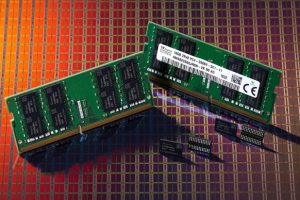June 6, 2025 – Toronto-based AI inference chip startup Untether AI, known for its near-memory computing solutions, has announced via its official website that its team will join AMD under a strategic agreement. As a result, Untether AI will discontinue the supply and support of its speedAI and imAIgine software development kits (SDKs).
AMD confirmed the move in a statement provided to tech media outlet CRN, highlighting the acquisition of Untether AI’s talented team of AI hardware and software engineers. The deal marks AMD’s latest effort to bolster its AI technology portfolio amid fierce competition in the semiconductor sector.
Untether AI’s second-generation AI inference accelerator, the speedAI240, integrates 1,400 custom RISC-V cores within its memory architecture, delivering up to 2 petaFLOPS of inference performance while achieving an energy efficiency of 20 teraFLOPS per watt. Housed in a single-slot AIC card with a thermal design power (TDP) of just 75W, the chip addresses a critical challenge in AI workloads: memory access and data movement bottlenecks.

Near-memory and in-memory computing architectures have emerged as promising solutions to these inefficiencies, offering both performance gains and reduced energy consumption from data transfers. Major memory players like Samsung Electronics and SK Hynix have already launched products based on processing-in-memory (PIM) concepts, underscoring the industry’s shift toward these innovative designs.
For AMD, the acquisition of Untether AI’s expertise strengthens its AI chip technology stack, positioning the company to better compete against rivals such as NVIDIA’s AI GPUs and specialized ASICs. The move aligns with AMD’s broader strategy to expand its footprint in high-growth AI markets, where efficiency and scalability are paramount.
By integrating Untether AI’s team, AMD gains access to cutting-edge memory-centric AI solutions, potentially accelerating the development of next-generation AI accelerators tailored for data-intensive applications. The deal reflects the evolving landscape of AI hardware, where innovation in memory architectures is reshaping the future of computing.












